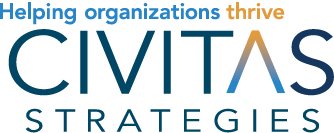What Are the Tax Consequences of a Grant?
Many family child care providers received money from their state or federal government.
It may have been called a grant, stipend, emergency relief funds, CARES funding, or some other name.
It may have been a one-time payment or recurring payments.
It may have been in the form of supplies or equipment.
What are the tax consequences of receiving money or supplies/equipment from your state or federal government?
In all cases, grants are taxable income to you. Report this income on your Schedule C if you are self-employed. It’s business, not personal, income.
If you received supplies or equipment, report the cost of the items as income. If you don’t know the cost, estimate their value.
You may or may not receive an IRS Form 1099 from your state reporting how much you received in grants for the year. You still must report grant money as income even if you don’t receive this form.
The tax benefit of a grant
You are always better off financially if you do receive a grant. This is true even though it’s taxable income. That’s because you will never pay more than about 30-40% of the grant in federal and state taxes. In other words, you will always end up with more money after paying taxes on any grant. Therefore, never turn down a grant!
Examples
If you got $2,000 in grants and spent $2,000 on supplies or toys or other items used exclusively for your business, you could deduct the full $2,000. As a result, you would owe no taxes on the $2,000.
If you got $2,000 in grants and spent $2,000 on supplies or toys used by your business and your own children, you could not deduct the full $2,000. Instead, you could deduct the business portion of the $2,000, which would be your Time-Space Percentage. If this percentage was 30%, you could deduct $600 as a business expense ($2,000 x 30% = $600). You would owe taxes on the difference of $1,400. But, even if you were in a high tax bracket of 40%, you would owe $560 in taxes. That would leave you with $2,000 worth of supplies or toys that cost you $560. Still a deal.
Note: Your state may say that their grant money is not subject to state income taxes. If so, it would still be subject to federal income taxes and Social Security/Medicare taxes when reported on Schedule C. Also, state grants are different than forgivable loans you may have received from the Small Business Administration (SBA). Any money you receive from the SBA Paycheck Protection Program (PPP) or the Economic Injury Disaster Loan (EIDL) programs are not taxable income.
Your state may limit you on what you can purchase with your grant. Some states allow you to spend it on "wages" or “operating expenses.” That seems to me to mean you can spend in on yourself as payroll. If it’s not clear what you can spend it on, try to get clarification from the agency that gave you the money.
If you are not limited as to what you can spend this grant money on, what could you spend it on? You could make home improvements, contribute to your retirement fund, purchase additional equipment such as computers, children’s furniture, playground surfacing, a fence, and so on. If your state says you can’t spend the money on home improvements or retirement, but does allow you to spend it on wages or operating expenses, you could use it for this and then use the money on home improvements, retirement and so on.
If you are receiving recurring stipends from your state, should you spend all of this money? Assuming you are free to allocate some or all of the money on wages or operating expenses, don’t feel you must spend the money once you receive it. It’s always better to save money rather than spend it. This is true even if you use the money to buy items for your business. Therefore, putting some money in an emergency fund, or paying off debt, or saving for retirement is always a good option rather than spending it.
Conclusion
All states have recently received millions of new dollars for child care assistance. Each state has wide leeway in how they can use the money. They can give out more grants, pay for equipment or training or other uses. Contact your local Child Care Resource and Referral agency to learn more about what your state will be doing with this money.
If there are new opportunities for you to receive a grant, take it! You will always be better off financially if you do.
Tom Copeland – www.tomcopelandblog.com
Image credit: https://advivo.com.au/government-grants-for-business/

